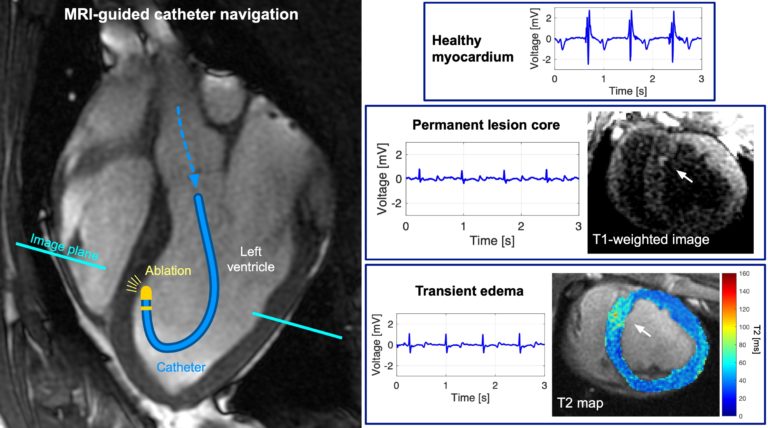MRI-Guided Cardiac RF Ablation for Comparing MRI Characteristics of Acute Lesions and Associated Electrophysiologic Voltage Reductions
https://www.embs.org/tbme/wp-content/uploads/sites/19/2022/07/TBME-01547-2021-Website-Image-scaled.jpeg
2560
1427
IEEE Transactions on Biomedical Engineering (TBME)
//www.embs.org/tbme/wp-content/uploads/sites/19/2022/06/ieee-tbme-logo2x.png
This study characterizes permanent and transient injury caused by cardiac RF ablation in a preclinical model. Native-contrast MRI features of ablation were investigated in relation to catheter-based electrophysiologic (EP) signals inherently co-registered within the same coordinate frame, and histologically validated. Specifically, we show that bipolar voltage was reduced in the presence of both the permanent T1-derived RF lesion and transient T2-derived edema. These results suggest that these regions are distinct in native-contrast MRI, but not differentiable using bipolar voltage. Intraprocedural MRI visualization distinguishing transient and permanent injury could guide creation of more complete durable RF ablations, reducing arrhythmia recurrence.
read more


